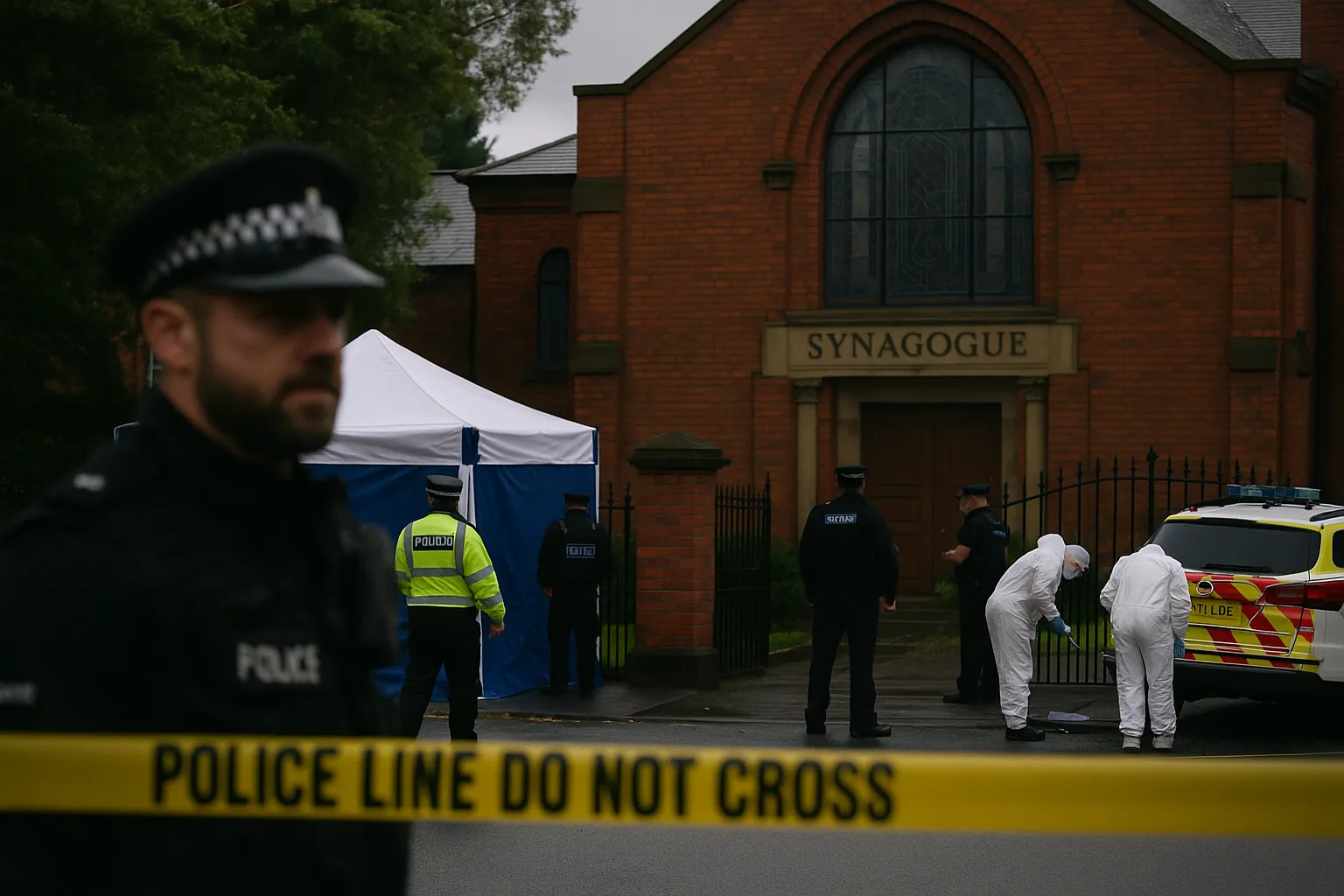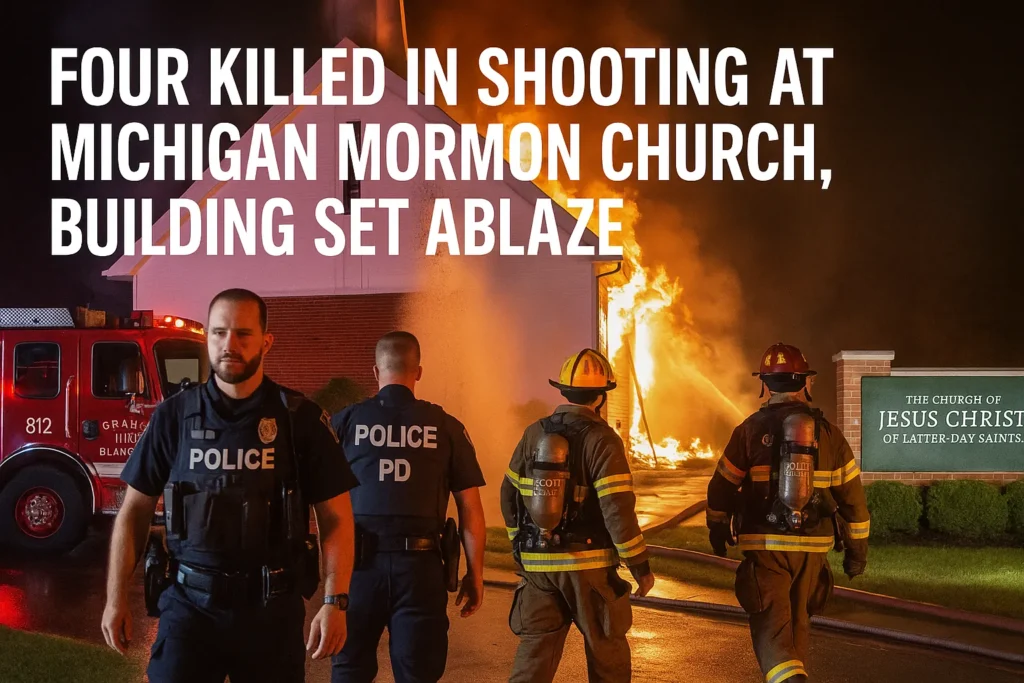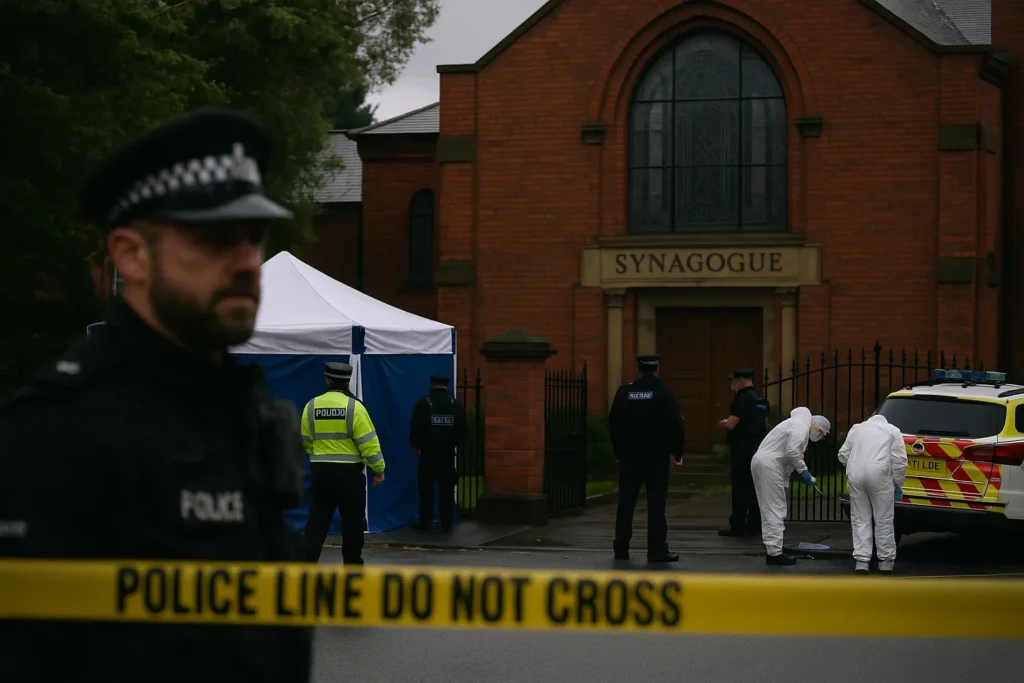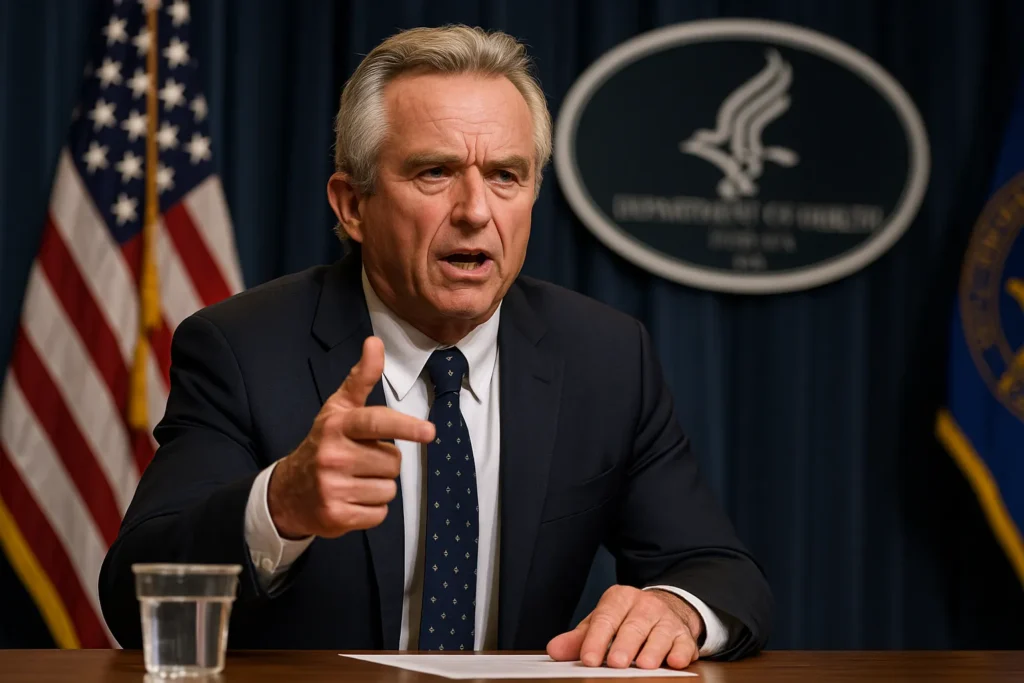The Manchester synagogue attack has left Britain’s Jewish community in shock and fear — but also in furious disbelief. Two people dead, four wounded, a car ramming followed by a stabbing outside a place of worship on the holiest day of the year. The suspect, shot dead by police, tried to force his way inside as worshipers, including the rabbi, barricaded the doors. For many, this was not just another hate crime — it was a breaking point.
Context: the illusion of safety in Britain
For decades, British Jews believed the United Kingdom was safer than continental Europe. France, Germany, and Belgium saw synagogue shootings and hostage crises. The UK, by contrast, prided itself on tolerance and security. Yet the Manchester synagogue attack shattered that illusion overnight.
According to CNN, the suspect rammed worshippers with his car before attacking them with a knife. Police responded within minutes, shooting the assailant as he attempted to breach the synagogue’s entrance. The motive — though not officially declared — bears every hallmark of an antisemitic terror act.
Home Secretary Yvette Cooper called the assault “barbaric,” promising enhanced protection for Jewish institutions. Yet community leaders say they warned of this outcome for years — warnings ignored by successive governments too focused on appeasing populist anger and downplaying antisemitic incidents.
Oppositional Argument: Britain’s complacency has consequences
While officials rush to condemn the attack, Britain’s political class bears moral responsibility. They tolerated years of online antisemitism disguised as “free speech.” They hesitated to ban extremist groups that radicalized young men online. They cut community policing budgets, leaving minority communities exposed.
In the aftermath of the Manchester synagogue attack, these failures can no longer be denied. The British state underestimated how imported Middle Eastern tensions, amplified by disinformation and radical ideologies, could ignite violence on its own soil.
Government agencies focused on “Islamophobia awareness” campaigns while neglecting antisemitic hate crimes that soared after every Gaza escalation. Now, a synagogue stands as a crime scene — and a warning.
Analytical Breakdown: antisemitism in the age of social media
Data from the Community Security Trust (CST) show antisemitic incidents in the UK jumped by 147% in the past year, particularly after renewed conflict in Gaza. Most occurred online — threats, slurs, and doxxing campaigns targeting Jewish activists.
Yet the real danger lies in how social media platforms, still unwilling to confront hate amplification, have normalized the rhetoric that fuels attacks like this. The suspect’s online footprint, if traced, will likely reveal exposure to extremist content masquerading as “pro-Palestinian activism” — a toxic blend of conspiracy, moral inversion, and rage.
The Manchester synagogue attack is not an isolated outburst but a symptom of an unchecked information war. Britain’s failure to regulate hate online has consequences measured not in data points but in funerals.
Human Perspective: fear and defiance inside the synagogue
Eyewitnesses described chaos and courage. The rabbi ordered doors barricaded, as families hid in prayer rooms whispering Psalms. Survivors say they heard the car crash, then screams, then gunfire.
“It felt like the end of the world,” said Miriam Goldstein, a congregant who lost a close friend. “We thought this could only happen in America or France. We were wrong.”
The community’s reaction is not just grief — it’s exhaustion. For months, synagogues have faced vandalism, protests, and online harassment. Many British Jews now question whether their country still protects them.
Counterarguments
Some commentators urge restraint, warning against “politicizing tragedy.” Others claim the attacker acted alone or suffered mental illness. But that argument ignores a decade of radicalization, tolerated in plain sight.
Dismissing this as an isolated act is willful blindness. It’s the same blindness that followed previous attacks on Jewish schools, cemeteries, and shops. Every time, officials promise action. Every time, the outrage fades.
Conclusion: a reckoning Britain can no longer postpone
The Manchester synagogue attack marks a turning point. The UK can no longer pretend antisemitism is a fringe problem or a cultural misunderstanding. It is a domestic security threat, a moral failure, and a political embarrassment.
If the government truly intends to protect its citizens, it must go beyond symbolic condemnations. It must purge hate from digital platforms, prosecute inciters with consistency, and restore community policing to every borough.
Because behind every statistic are real people — families who gathered to pray and ended up running for their lives. The illusion of British exceptionalism died in Manchester. What replaces it depends on whether the nation confronts its own silence.
External Links
108 views






